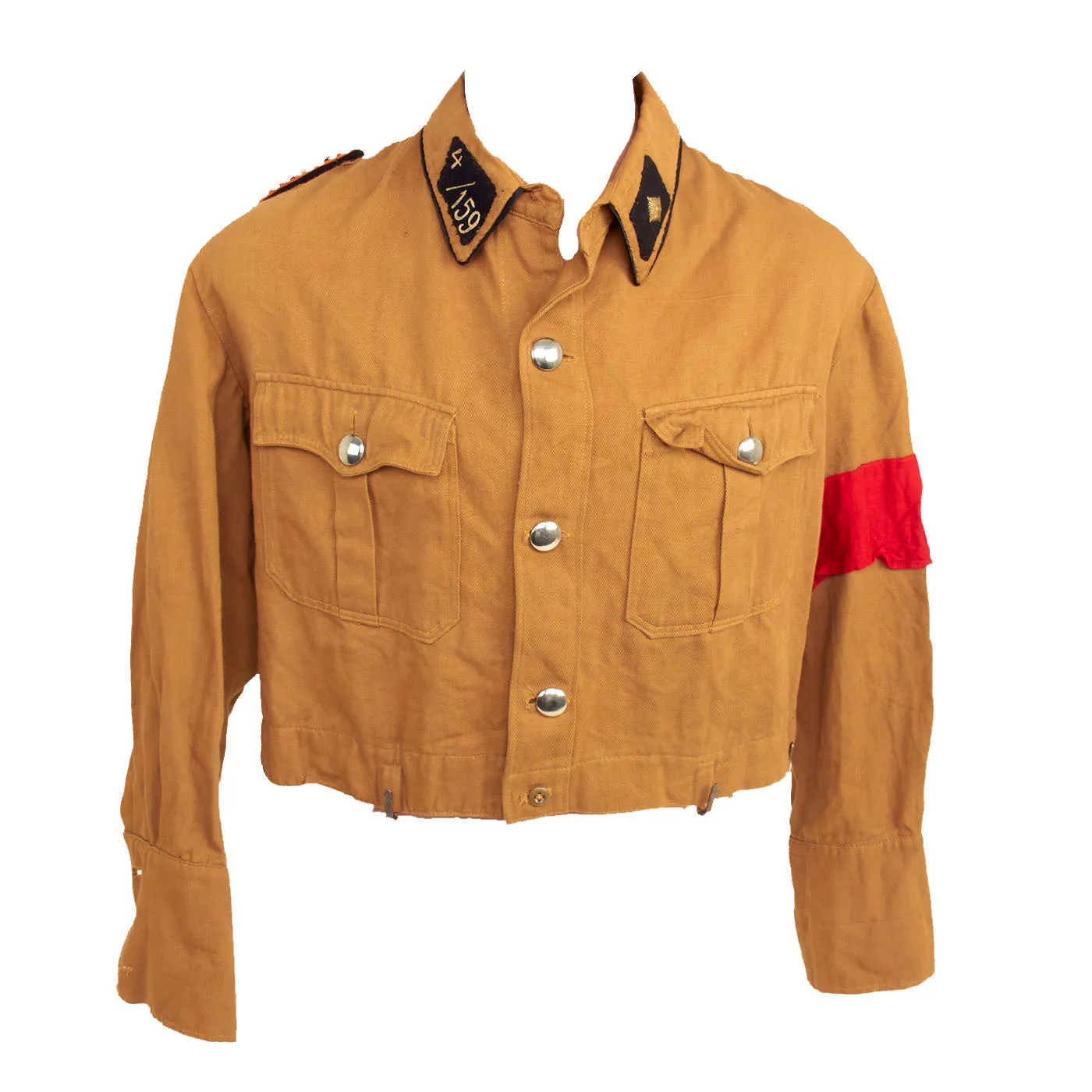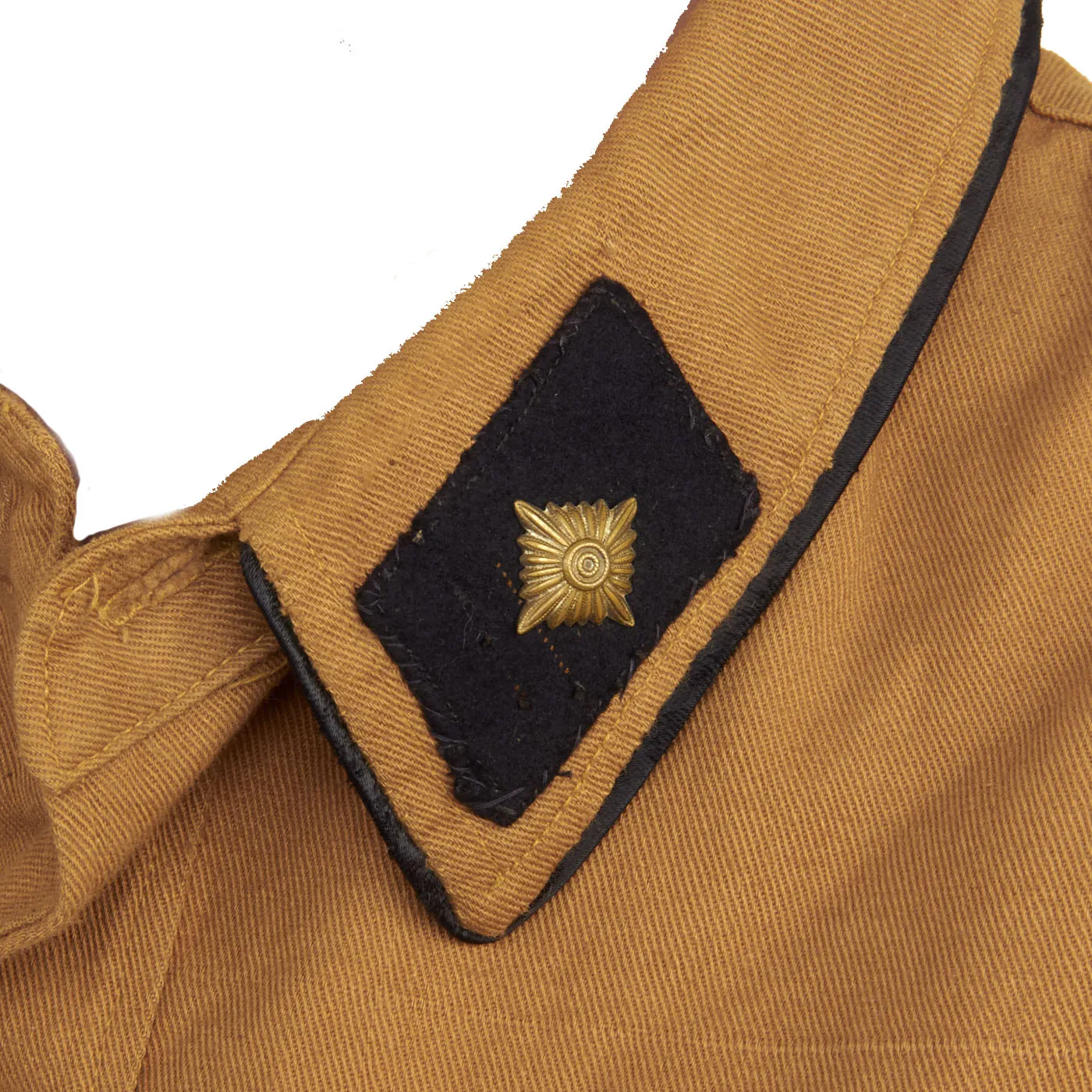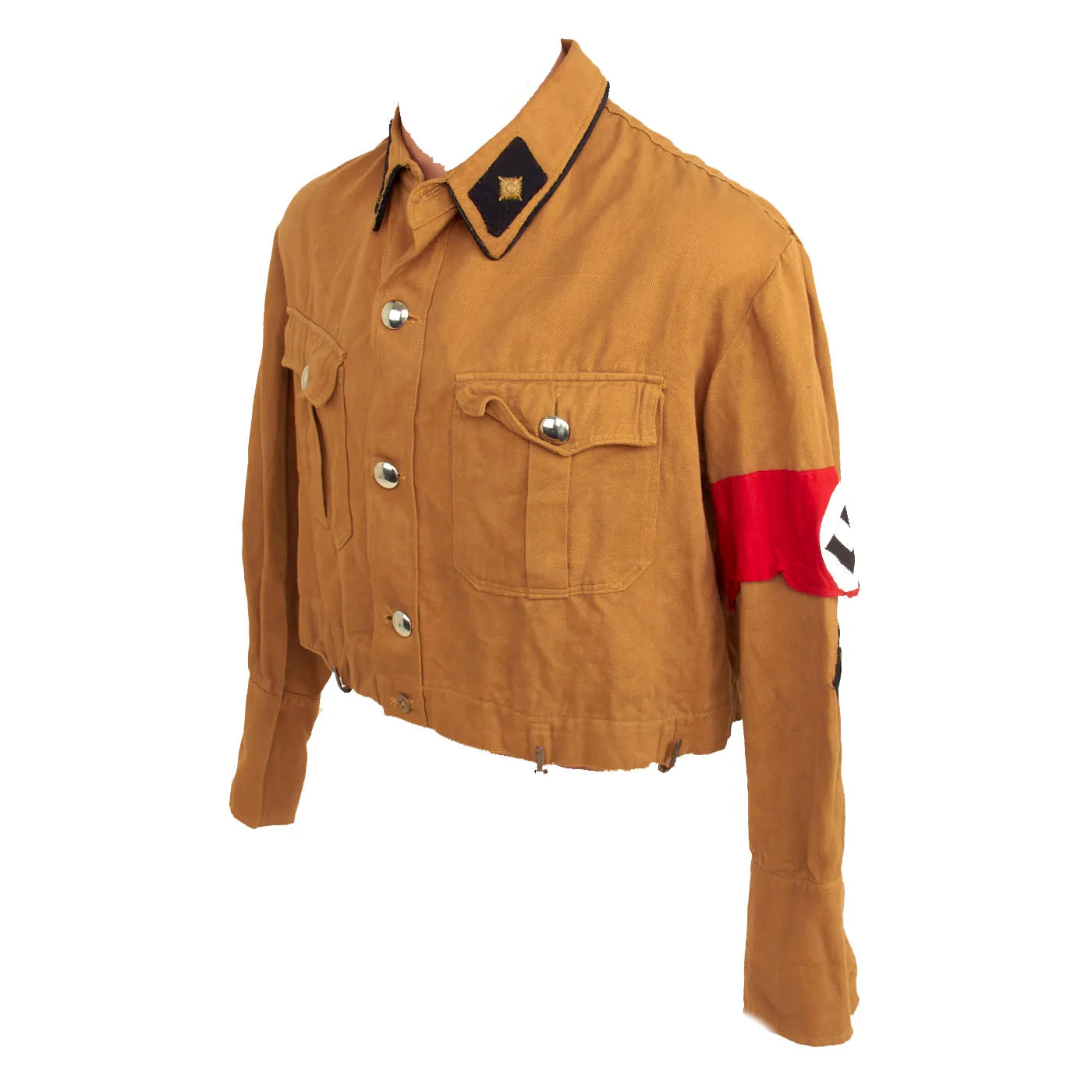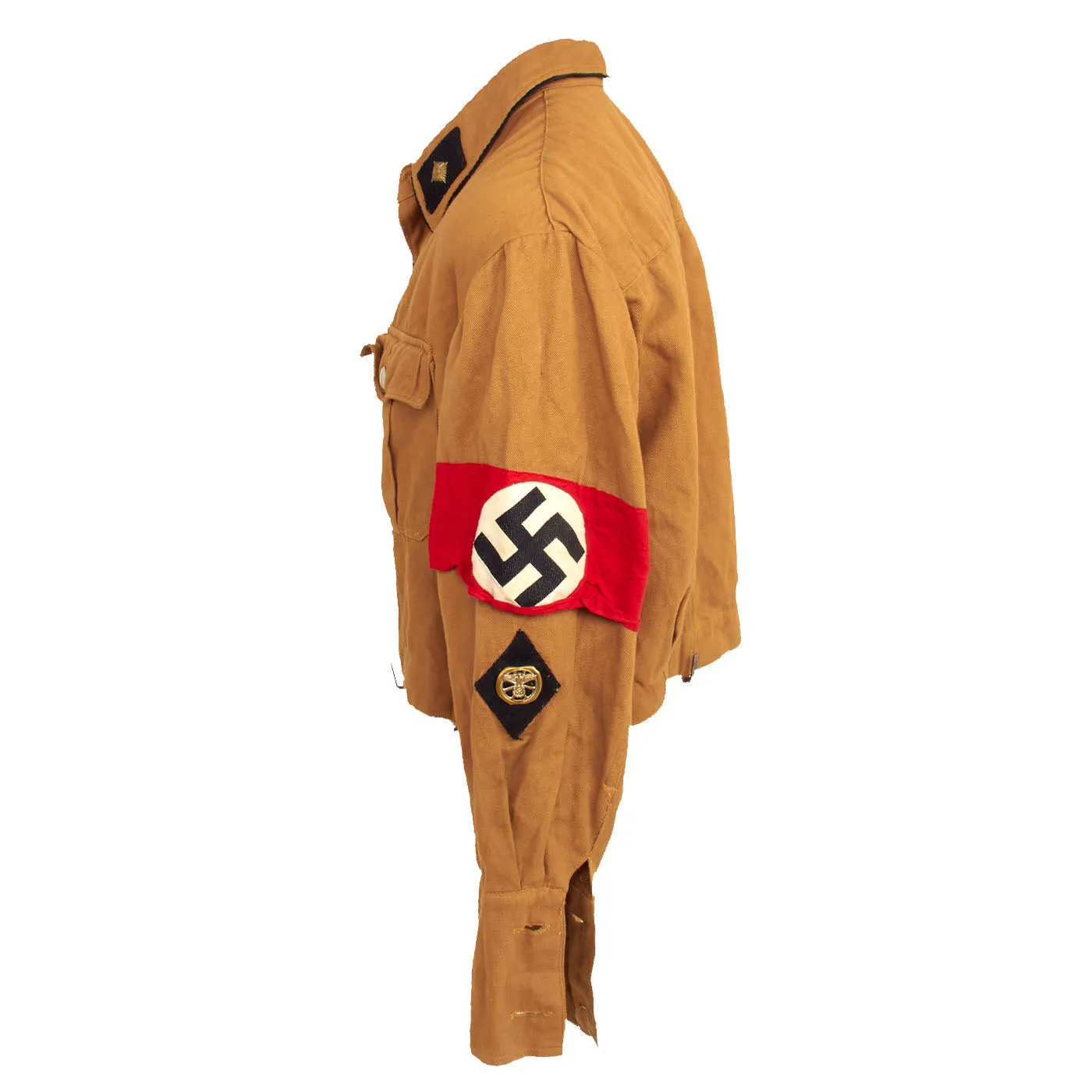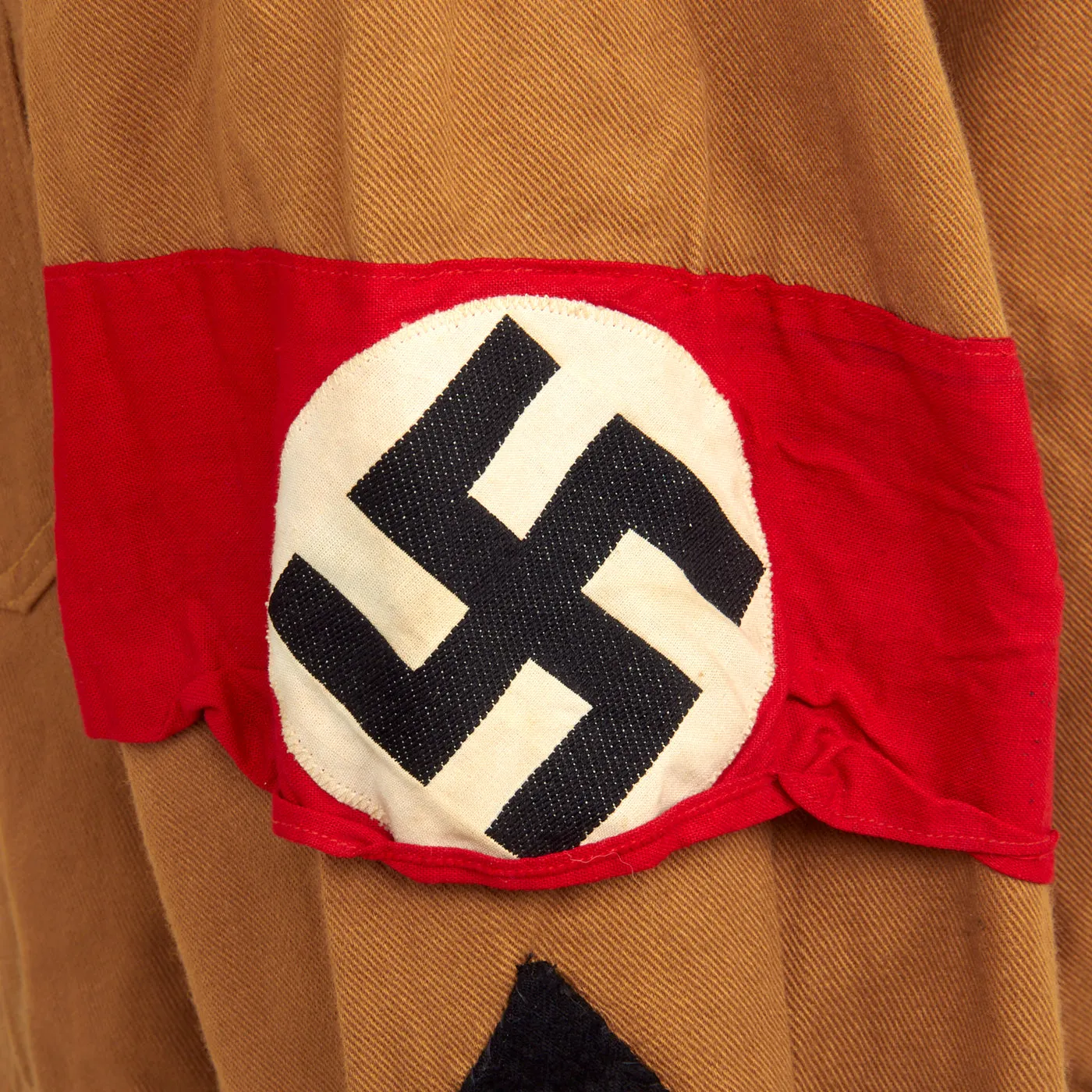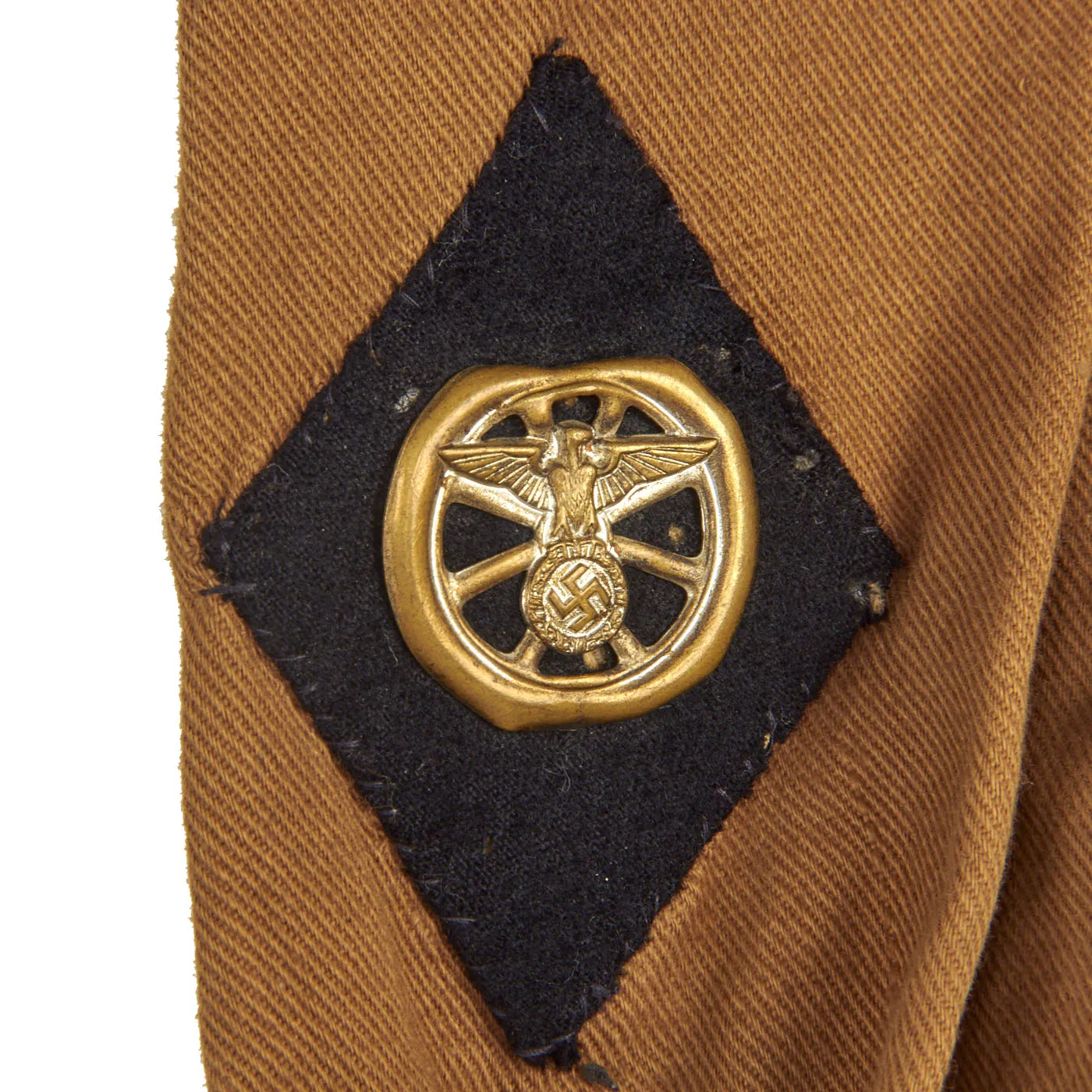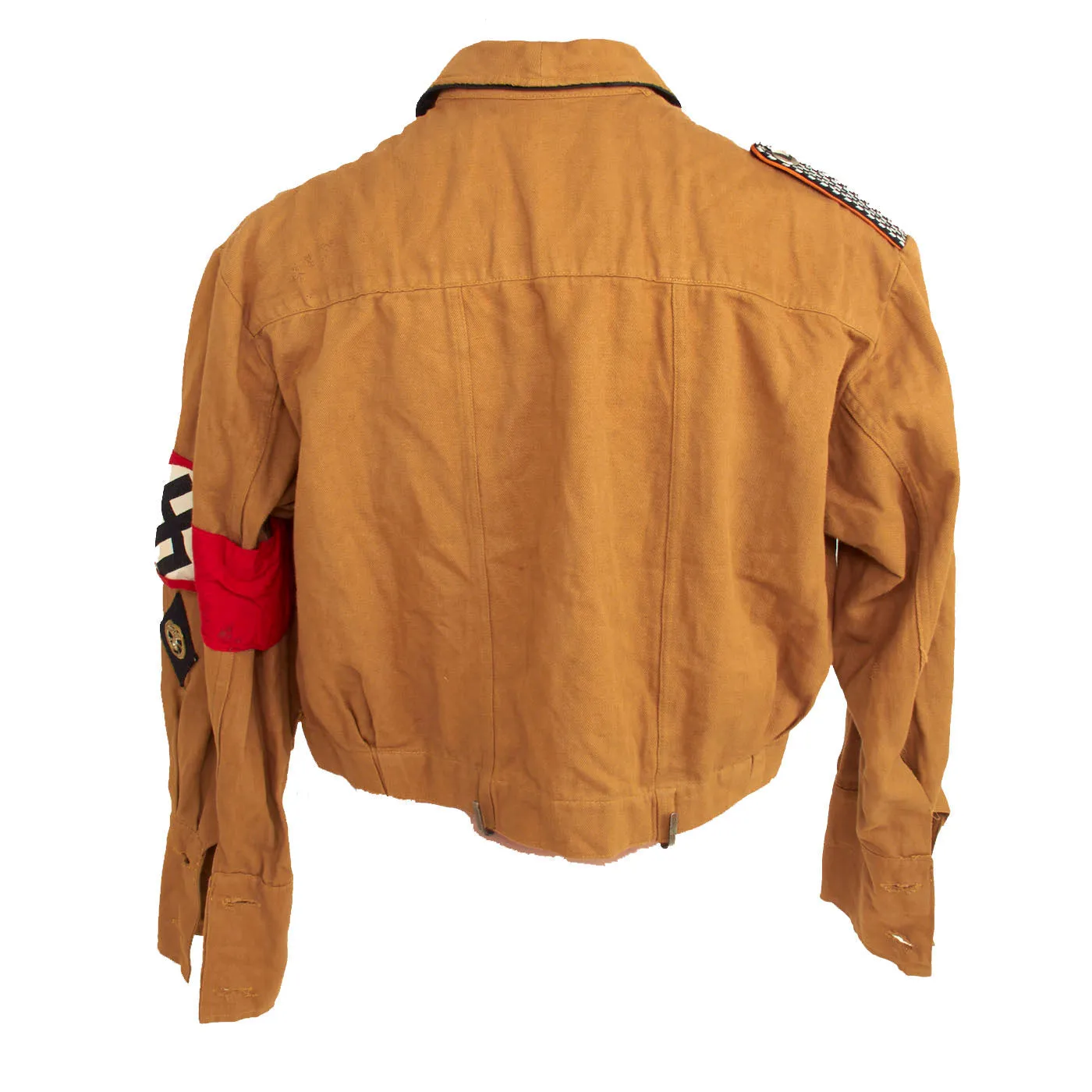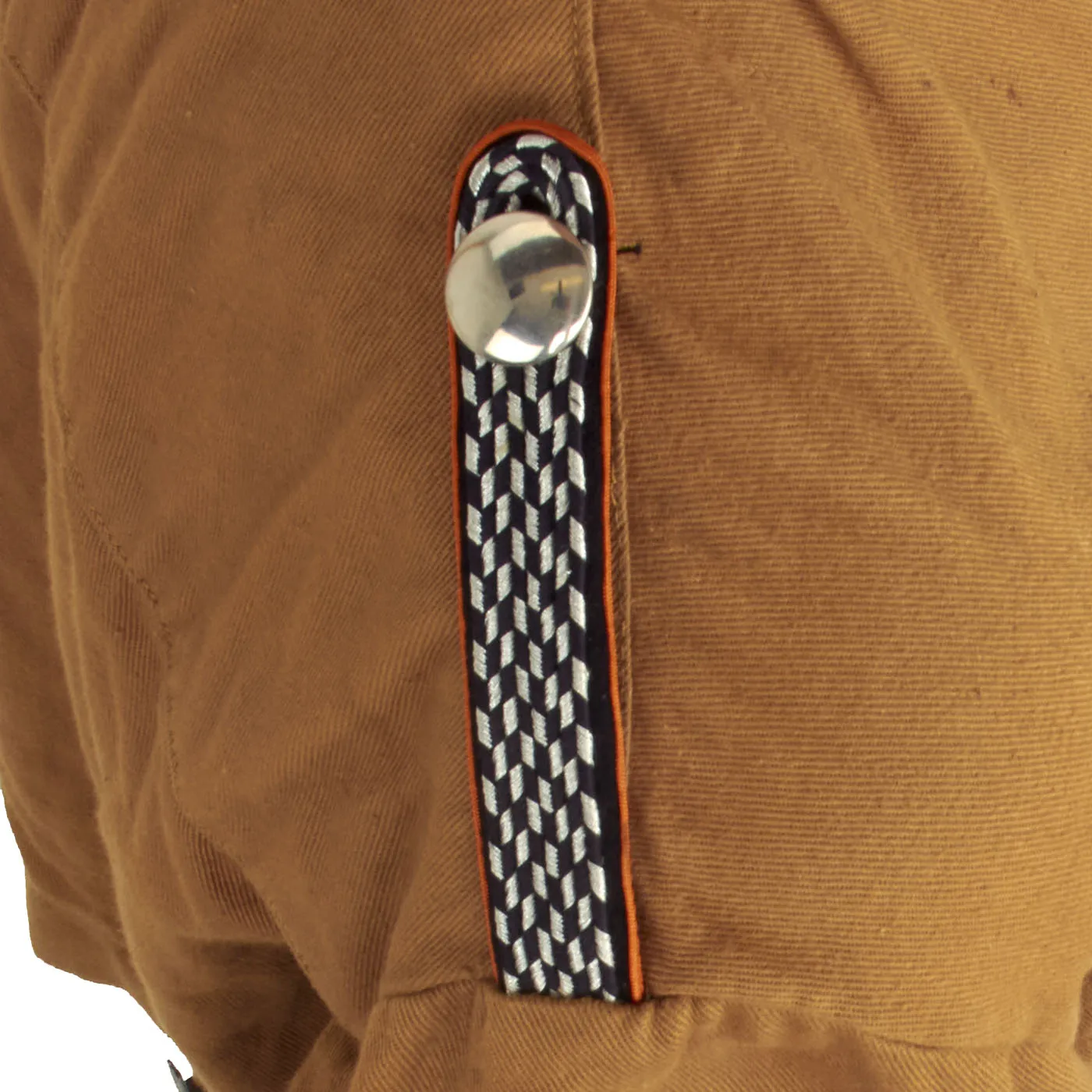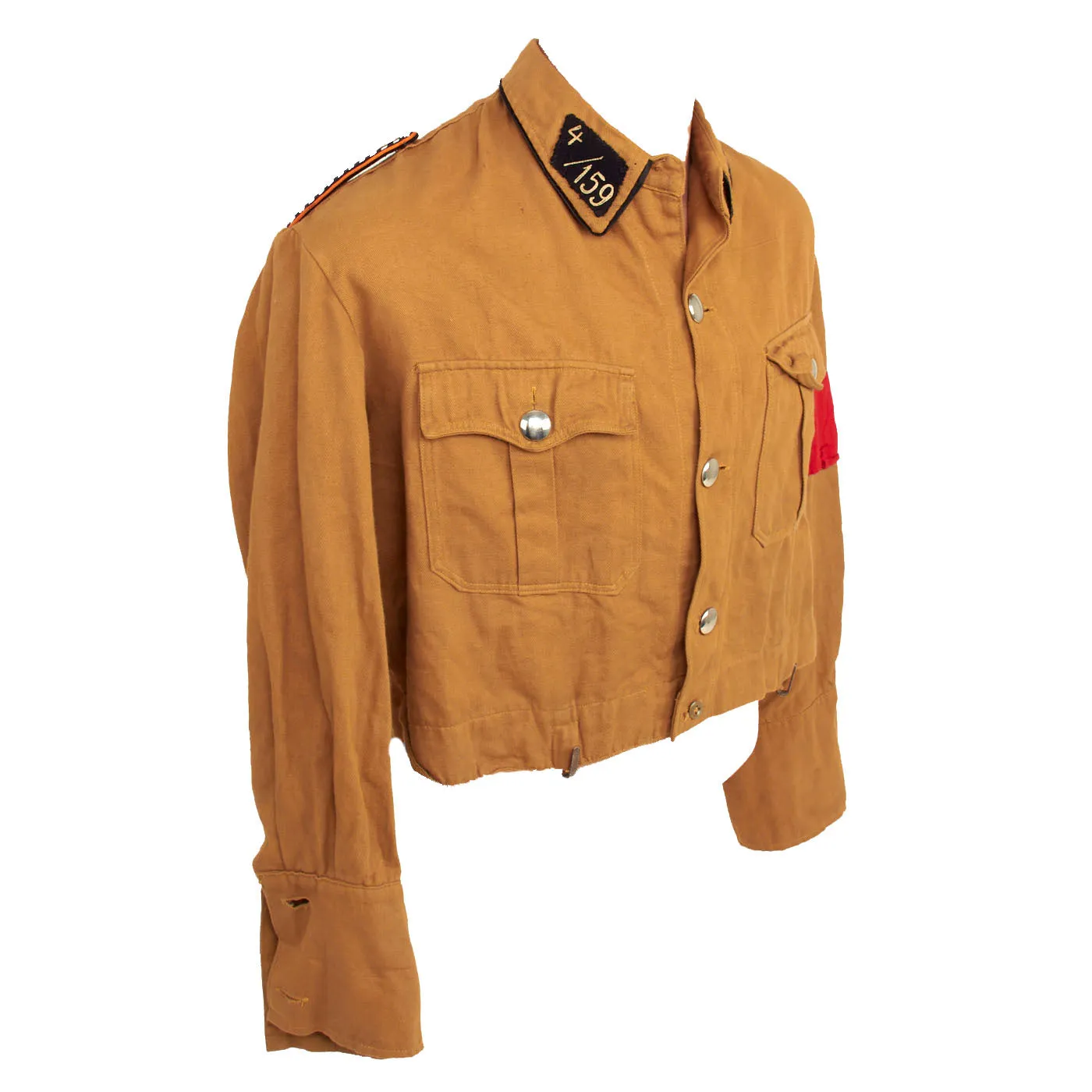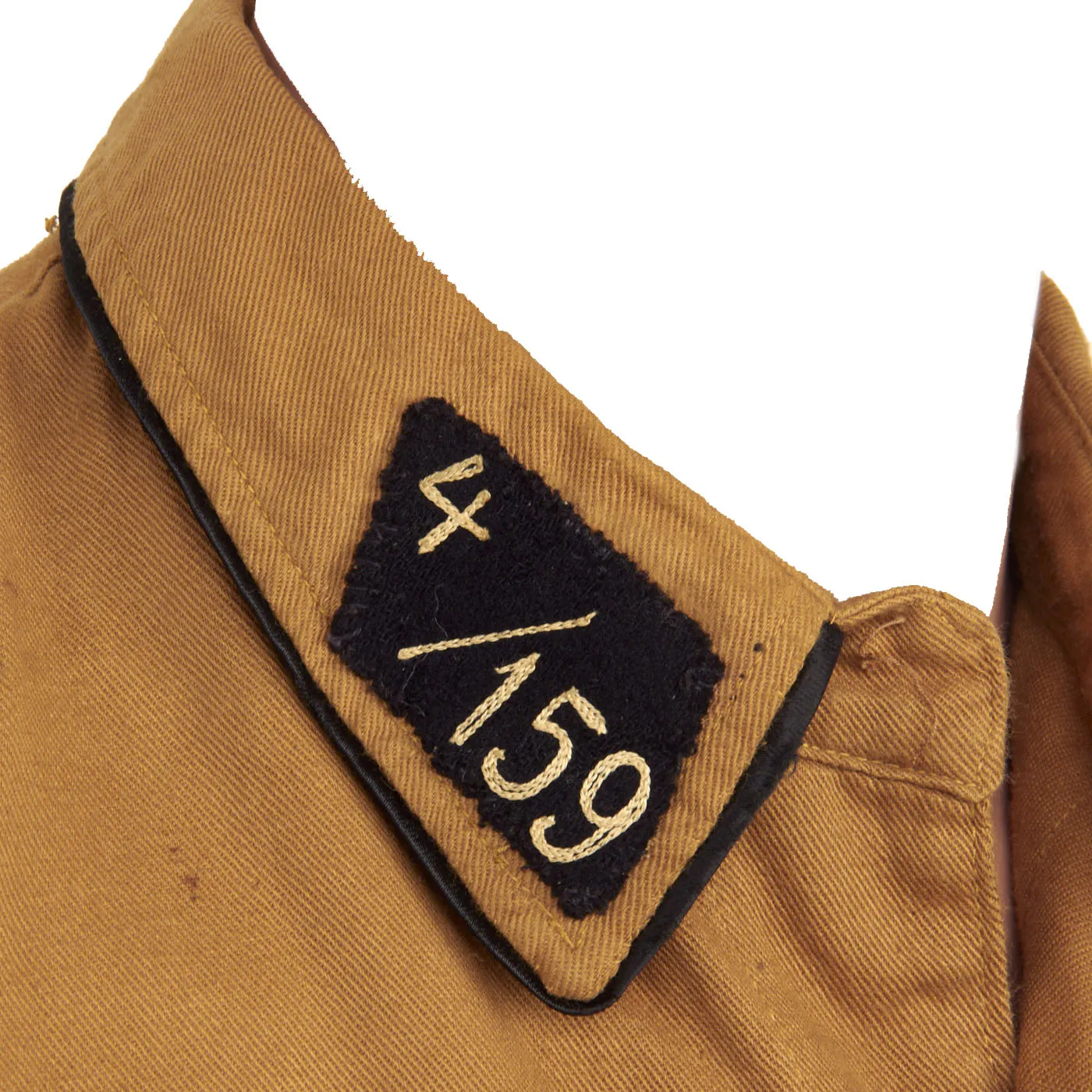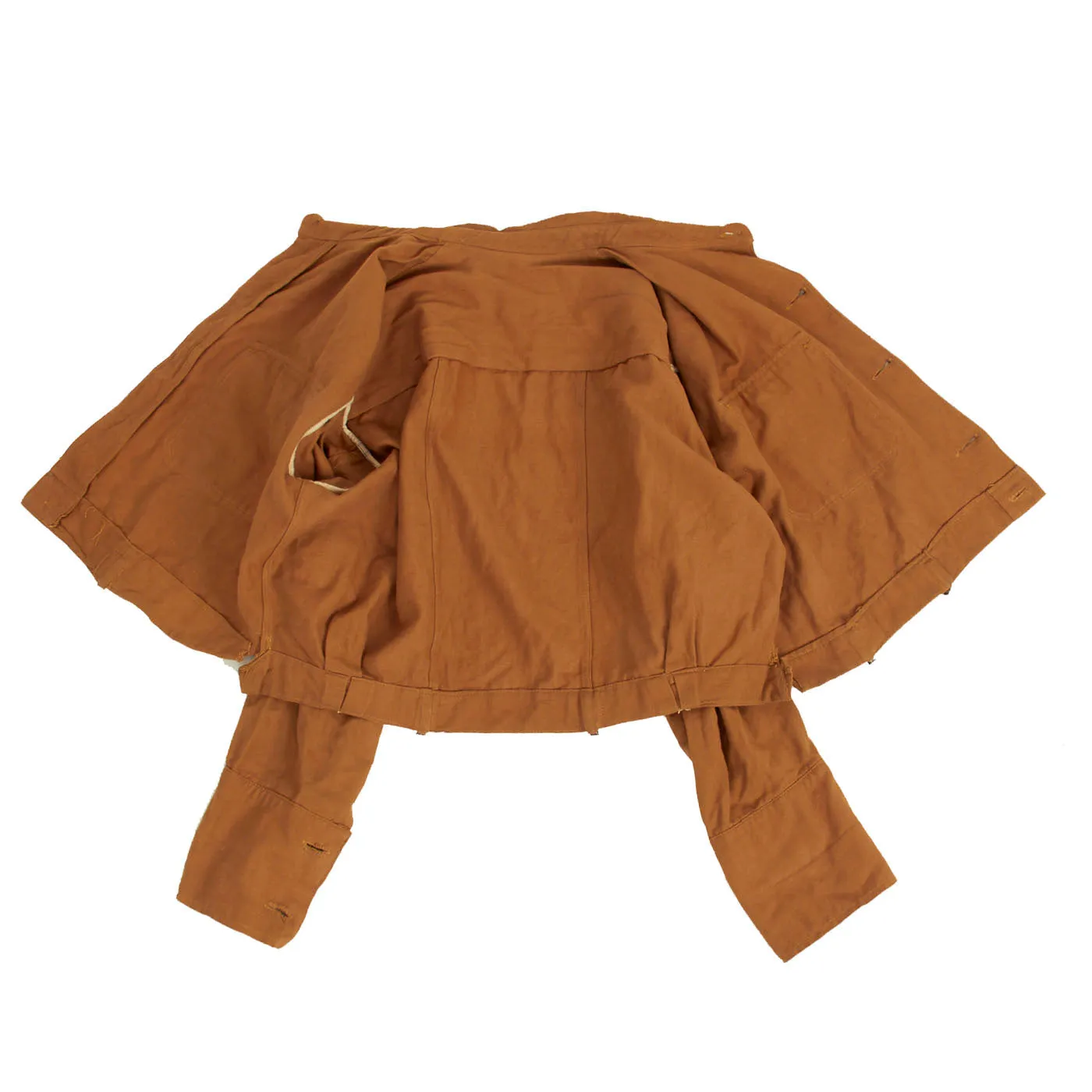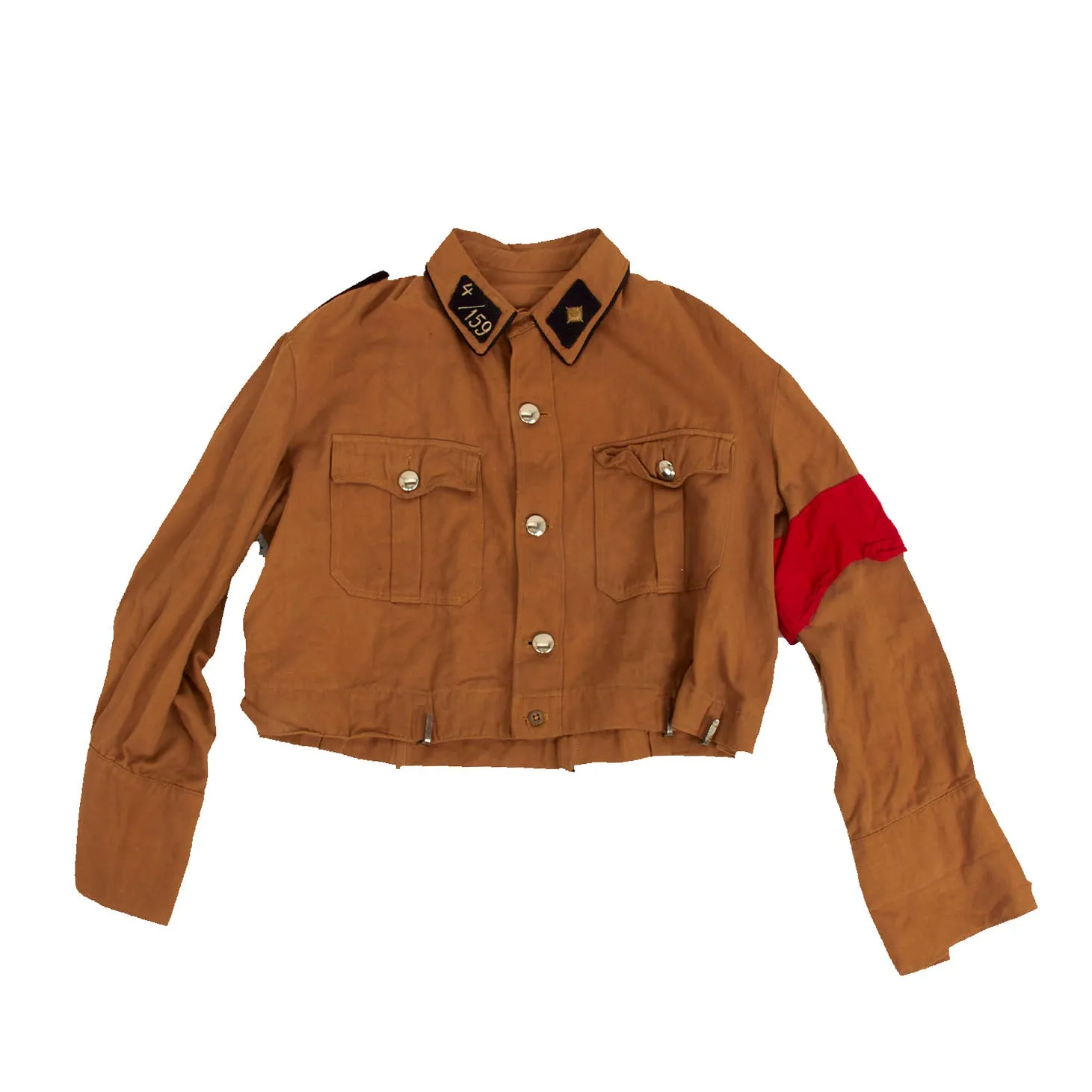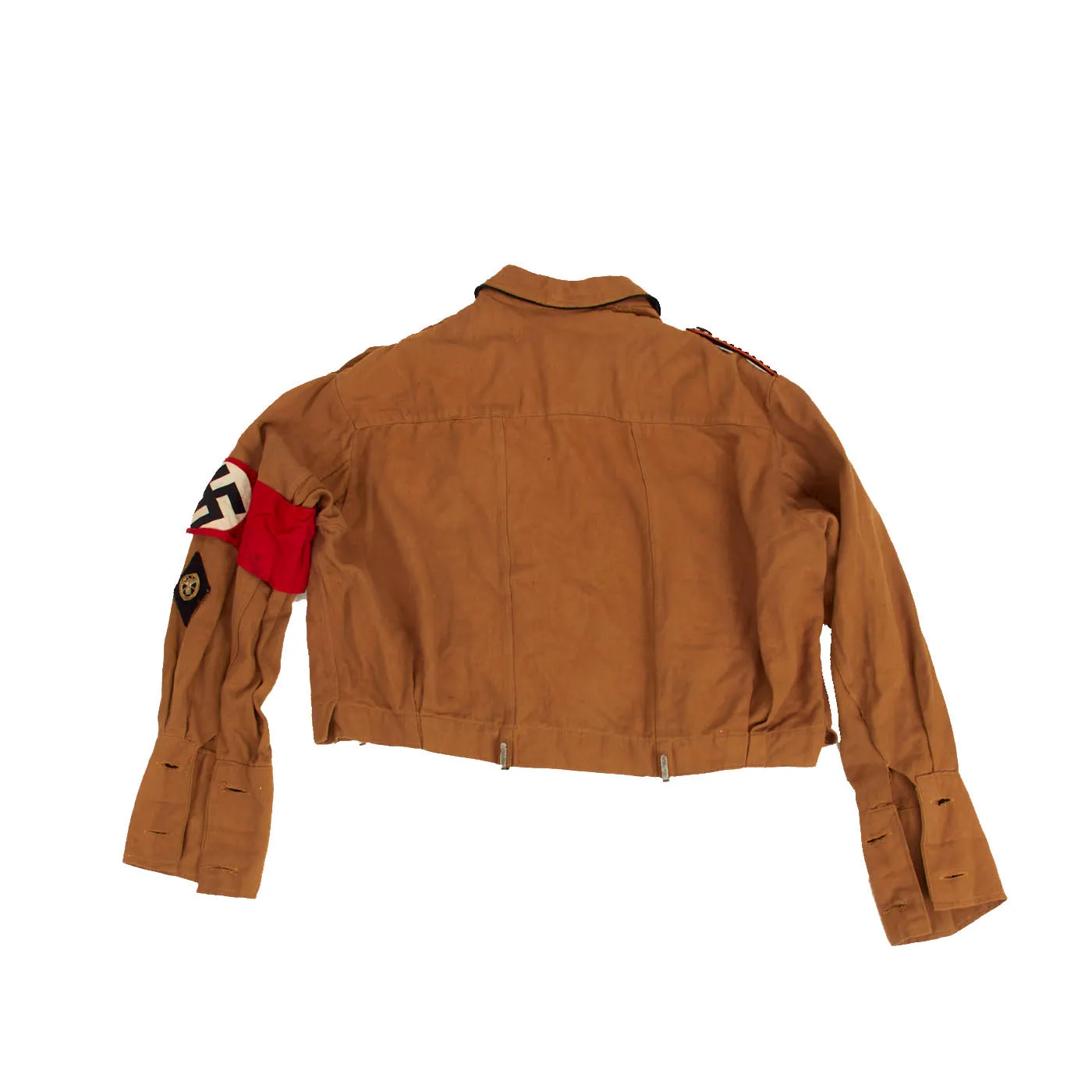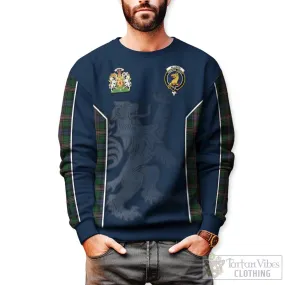Original Item: One-of-a-kind. Brown was to become the official color of the N.S.D.A.P. and S.A. by circumstance rather than design. A large stockpile of discounted, surplus WWI tropical brown shirts and fabric, intended for wear in East Africa, were located in Austria in 1924 and purchased by the NSDAP as a temporary measure to bring uniformity of dress to their party members. In November of 1926 the brown shirt was officially introduced, and retained, as the basic uniform item for the N.S.D.A.P. and S.A., and was eventually adopted by other political organizations such as the H.J., D.A.F., and the N.S.K.K..
This is a very nice example of a German WWII SA "Brown Shirt" uniform tunic, showing some great period wear and totally correct. We checked, and were not able to locate any maker or other markings inside. It features a 5 button front closure, with a smaller plastic button at the bottom. The collar button is also usually plastic, and is unfortunately missing on this tunic.
The shirt has all the correct insignia for the period, including a stitched on NSDAP / SA armelbinde (armband) on the left sleeve. Under this is a First Pattern NSKK Kraftfahrraute (Driver's Diamond), indicating that the owner of this shirt was a part of the SA Motor / Driver units, which eventually evolved into the NSKK, or National Socialist Motor Corps. The kragenpatten (collar tabs) and NCO Collar piping all have Shwarz (black) backgrounds, which with the silver buttons and "pips" indicates the Berlin-Brandenburg SA gruppe (group), which encompassed the area around Berlin and the Western part of Brandenburg. The NCO schulterklappe (shoulder strap) has a black base with orange piping, which we unfortunately do not know the significance of.
The right collar tab is the unit tab, and 4 / 159 indicates the 4th Sturm (company), 159th Standarte (Regiment). The left collar tab has a single "pips" with no other insignia, for the Junior NCO rank SA-Scharführer (SA-Squad leader), a company leader equivalent to a German Army Unteroffizier (Corporal). The right shoulder strap has two rows of black/white double cord, correct for an NCO.
Overall condition of the tunic is very nice, showing light wear from service, especially around the collar area of the shirt. The fabric is somewhat worn in places, with some light staining, however there are no repairs or major damage we can see.
A very nice example of an SA "Brown Shirt" NCO uniform tunic from the early Motor Corps, ready to display!
Approx. Measurements:
Collar to shoulder: 10”
Shoulder to sleeve: 23”
Shoulder to shoulder: 19”
Chest width: 21”
Waist width: 20”
Hip width: N/A”
Front length: 21"
The S.A.-
The Sturmabteilung, literally Storm Detachment, was the NSDAP Party's original paramilitary. It played a significant role in Adolf AH's rise to power in the 1920s and 1930s. Its primary purposes were providing protection for NSDAP rallies and assemblies, disrupting the meetings of opposing parties, fighting against the paramilitary units of the opposing parties, especially the Red Front Fighters League (Rotfrontkämpferbund) of the Communist Party of Germany (KPD), and intimidating Romani, trade unionists, and, especially, Jews – for instance, during the NSDAP boycott of Jewish businesses.
The SA were also called the "Brownshirts" (Braunhemden) from the color of their uniform shirts, similar to Benito Mussolini's blackshirts. The SA developed pseudo-military titles for its members, with ranks that were later adopted by several other NSDAP Party groups, chief amongst them the Schutzstaffel (SS), which originated as a branch of the SA before being separated. Brown-colored shirts were chosen as the SA uniform because a large number of them were cheaply available after World War I, having originally been ordered during the war for colonial troops posted to Germany's former African colonies.
The SA became disempowered after Adolf AH ordered the "blood purge" of 1934. This event became known as the Night of the Long Knives (die Nacht der langen Messer). The SA continued to exist, but was effectively superseded by the SS, although it was not formally dissolved until after NSDAP Germany's final capitulation to the Allies in 1945.




